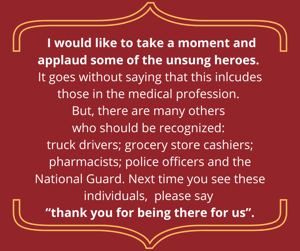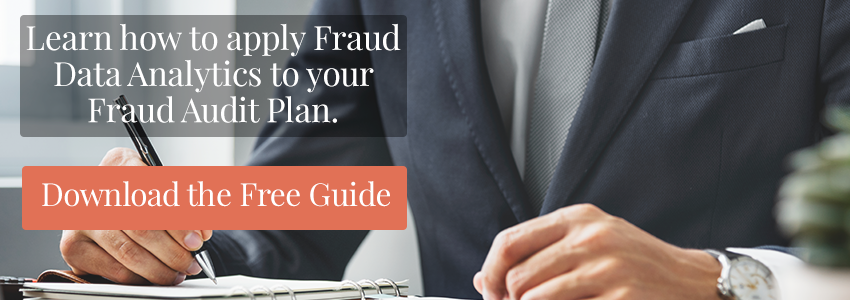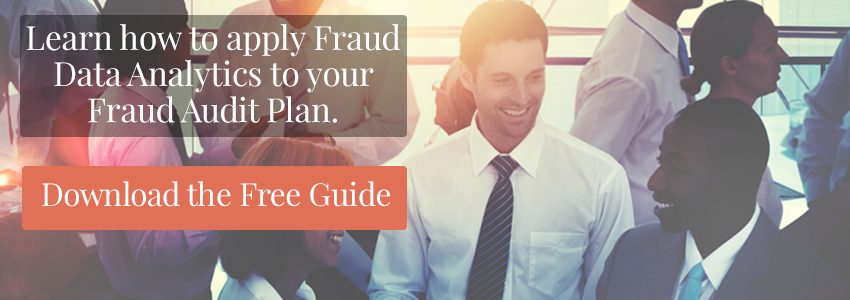My marketing team has encouraged me to write about the impact of Covid-19. To an extent, writing about the benefits of fraud auditing in the middle of a world crisis does not seem like the right time or place, but there is a greater potential for fraud during times of upheaval. And, we all have bosses, so here I go." FYI, my May blog will be USA centric, I apologize to my world readers.
 The purpose of this blog is to reflect on the usefulness of the fraud triangle in overall fraud management.
The purpose of this blog is to reflect on the usefulness of the fraud triangle in overall fraud management.
Now is the time to find out if the fraud triangle is as good of a fraud predictor as touted by our profession. I hope you read, reflect, think and learn. For the most part, I will not offer opinions. Or, maybe just a few.
The Fraud Triangle Set up
At no time in my professional history has the business environment been riper for internal employees or corporations to commit fraud. Pressures, rationalization and opportunity will be present. So as business ramps up, should we expect internal fraud to increase? The fraud triangle would suggest the answer is yes. You could easily argue that we have the perfect fraud storm.
People are out of work. Unemployment is rampant. Family bills will be mounting. Sounds like gloom. I am not talking about enough money to go to the movies, I am talking about their ability to feed their families and pay the rent, the most basic requirements of Maslow’s hierarchy of needs. Corporations will be fighting for survival. Senior corporate management will need to start producing revenue to have any chance of meeting Wall Street expectations. So, what does the fraud triangle tell us about the pressures to commit fraud?
Let’s consider what could happen with rationalization. Has everything we have counted upon let us down? Has our employer been there for us? Has our government handled this well or not? Is this my fault or someone else’s? What do the answers to those questions do to the mental outlook of corporations or employees regarding ethical behavior?
Will the pressure to get the business going affect strict adherence to the internal controls? I suppose we could argue that when we return to work the same internal controls will be in place. But internal controls are only as good as the people performing the tasks. What will be your employee’s mindset?
This is an event that has impacted the entire world and all industries. Some more and some less but think about the following phrase “opportunity to commit fraud”. I predict that both employees and companies will feel the pressure to look the other way as the world opens. What “looking the other way” means will depend on the industry and the primary category of fraud, see my blog on fraud risk statements for more on that topic. Remember, there are all kinds of fraudulent behavior. Is your fraud management program ready for these challenges?
What Could Happen in the Real World
As you reflect on the fraud triangle, think about real life events occurring around you. I will use the following three situations:
I would suggest you follow the roll out, the administration of, and the forgiveness phase of the United States Government’s Payroll Protection Program. There are four primary players (person committing) the banks, the recipients, organized crime groups and the government. I would ask you to watch not only the actual theft schemes but also the ethical decisions being made by the four parties. To be very clear, I am not casting dispersion on anyone. I am simply pointing out that this is a unique opportunity to watch and learn how the fraud triangle impacts fraud management. Think about the fraud schemes that can be committed by the four parties. The three primary categories will be asset misappropriation, conflict of interest and corruption.
Recently, I read an article about the maintenance challenges the airline industry faces once we start flying. I am a loyal customer of Delta Airlines, in fact I have charter diamond flying status. Delta always stress safety first. In fact, safety should be a priority for all the industry. But, could pressure in the industry to start flying cause a laxness in maintenance procedures?
And finally, let’s look at the food industry. Let’s be honest, in the early stages people starting hoarding food. This placed a tremendous stress on the food chain. Now are hearing reports about workers with COVID-19 who have been working food processing plants. Could this mean that the food you purchased have the virus? Will it impact food production? How will it affect workers and their availability? Should there be a review of what and who failed?
I do not have all the answers. I don’t even know all the questions. What I do know, however, it that this will be interesting times for fraud professionals to study the impact of the fraud triangle on corporate and employee behavior. If I may offer one recommendation:
Communication is important. How many of you have been glued to the news? I look for Governor Cuomo’s daily email. What is the status of COVID-19 in NYS today? I suggest that your management communicate to all employees about the importance of ethical behavior as business ramp up. A few parting thoughts
- Remember, ethics is a rationalized state of mind.
- Public defensibility, how will the world judge your corporate decisions?
- Watch and learn. That is all I ask.





